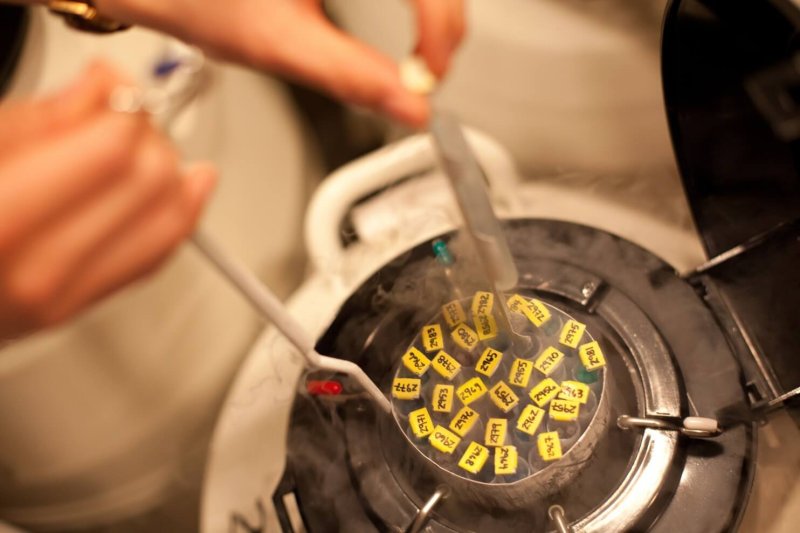The GLP aggregated and excerpted this blog/article to reflect the diversity of news, opinion and analysis.
Recently, my husband and I signed forms donating an embryo we had conceived to medical research. Meanwhile, conservative Republicans are vowing to defund Planned Parenthood for allowing women who have abortions to make the same choice.
My husband and I used in vitro fertilization to conceive both our children. The process involved extracting my eggs, fertilizing them in a lab and implanting a healthy embryo inside me. Many patients — like my husband and me — produce more embryos than they can use. So clinics cryogenically freeze them until patients choose to use them in another IVF cycle, dispose of them, donate them to scientific research or offer them to an infertile couple. After two years and careful thought, we chose to donate ours to research. We hope our choice will help doctors find cures for debilitating and fatal illnesses such as Huntington’s disease and ALS.
Like our fertility clinic, Planned Parenthood allows women to donate to medical research tissue from an embryo or fetus they will not carry to term. Like our clinic, Planned Parenthood receives no profit for this, only reimbursement for its costs (indeed, the full, unedited version of the video that sparked recent Republican outrage provides evidence that Planned Parenthood does not profit from giving women this choice).
Yet there are striking differences between my experience and that of a woman seeking an abortion. In Pennsylvania (where my fertility clinic is located), a woman seeking an abortion must receive state-directed counseling designed to discourage her from the procedure.
Read full, original post: Fertility clinics destroy embryos all the time. Why aren’t conservatives after them?































